
The Sixth Amendment to the United States Constitution sets forth rights related to criminal prosecutions. It was ratified in 1791 as part of the United States Bill of Rights. The Supreme Court has applied all but one of this amendment's protections to the states through the Due Process Clause of the Fourteenth Amendment.
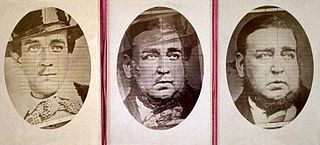
The Tichborne case was a legal cause célèbre that fascinated Victorian Britain in the 1860s and 1870s. It concerned the claims by a man sometimes referred to as Thomas Castro or as Arthur Orton, but usually termed "the Claimant", to be the missing heir to the Tichborne baronetcy. He failed to convince the courts, was convicted of perjury and served a long prison sentence.

Lucy Walter, also known as Lucy Barlow, was the first mistress of King Charles II of England and mother of James, Duke of Monmouth. During the Exclusion Crisis, a Protestant faction wanted to make her son heir to the throne, fuelled by the rumour that the king might have married Lucy, a claim which he denied.

The Royal baccarat scandal, also known as the Tranby Croft affair, was a British gambling scandal of the late 19th century involving the Prince of Wales—the future King Edward VII. The scandal started during a house party in September 1890, when Sir William Gordon-Cumming, a lieutenant colonel in the Scots Guards, was accused of cheating at baccarat.

A Serjeant-at-Law (SL), commonly known simply as a Serjeant, was a member of an order of barristers at the English and Irish Bar. The position of Serjeant-at-Law, or Sergeant-Counter, was centuries old; there are writs dating to 1300 which identify them as descended from figures in France before the Norman Conquest, thus the Serjeants are said to be the oldest formally created order in England. The order rose during the 16th century as a small, elite group of lawyers who took much of the work in the central common law courts.

Henry Hawkins, 1st Baron Brampton,, known as Sir Henry Hawkins between 1876 and 1899, was an English judge. He served as a Judge of the High Court of Justice between 1876 and 1898. R. F. V. Heuston described him as "probably the worst judge on the English Bench in the nineteenth century."
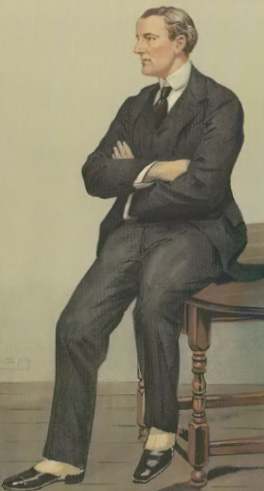
Sir Edward Marshall Hall, was an English barrister who had a formidable reputation as an orator. He successfully defended many people accused of notorious murders and became known as "The Great Defender".
Alexander Martin Sullivan, SL was an Irish lawyer, best known as the leading counsel for the defence in the 1916 treason trial of Roger Casement. He was the last barrister in either Ireland or England to hold the rank of serjeant-at-law, hence his nickname The Last Serjeant.

Sir John Walter Huddleston was an Irish judge, formerly a criminal lawyer who had established an eminent reputation in various causes célèbres.
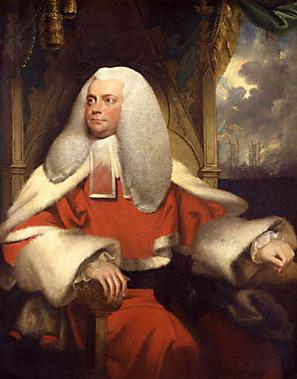
Sir Francis Buller, 1st Baronet was an English judge.

Sir William Garrow was an English barrister, politician and judge known for his indirect reform of the advocacy system, which helped usher in the adversarial court system used in most common law nations today. He introduced the phrase "presumed innocent until proven guilty", insisting that defendants' accusers and their evidence be thoroughly tested in court. Born to a priest and his wife in Monken Hadley, then in Middlesex, Garrow was educated at his father's school in the village before being apprenticed to Thomas Southouse, an attorney in Cheapside, which preceded a pupillage with Mr. Crompton, a special pleader. A dedicated student of the law, Garrow frequently observed cases at the Old Bailey; as a result Crompton recommended that he become a solicitor or barrister. Garrow joined Lincoln's Inn in November 1778, and was called to the Bar on 27 November 1783. He quickly established himself as a criminal defence counsel, and in February 1793 was made a King's Counsel by HM Government to prosecute cases involving treason and felonies.
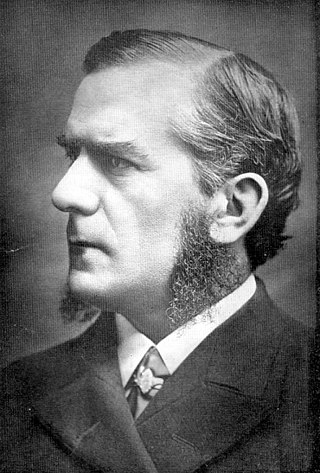
Sir Edward George Clarke, KC was a British barrister and politician, considered one of the leading advocates of the late Victorian era and serving as Solicitor-General in the Conservative government of 1886–1892. His legal career included representing Oscar Wilde in his disastrous prosecution of the Marquess of Queensberry for libel, and representing the plaintiff in the "baccarat case", during which Sir Edward cross-examined the Prince of Wales. He was a member of the anti-women's suffrage movement.
William Campbell Sleigh was an English lawyer and politician. He became a serjeant-at-law in 1868, the last person received into Serjeants' Inn who was not a judge.
John Mervyn Guthrie Griffith-Jones was a British judge and former barrister. He led the prosecution of Penguin Books in the obscenity trial in 1960 following the publication of D. H. Lawrence's Lady Chatterley's Lover. His much quoted remark in his opening statement as to whether the novel was something "you would even wish your wife or servants to read" is often cited as representing the extent to which the British establishment had fallen out of touch with popular opinion at the time. He failed to convince the jury at the Chatterley trial, and the publishers were acquitted.
Sir Frederick Geoffrey Lawrence was a British lawyer, High Court Judge, Chairman of the Bar Council and Chairman of the National Incomes Commission. He first came to prominence when he defended Dr John Bodkin Adams in 1957 on a charge of the murder of Mrs Edith Alice Morrell, the first murder case he handled. Prejudicial press coverage of the case prior to the trial suggested Adams was guilty and that the verdict would be a foregone conclusion, but Lawrence successfully secured an acquittal. Adams, if convicted, might have been hanged, had he also been found guilty on a second murder indictment that had been brought. Devlin at the time, and later investigation, suggested Adams was acquitted in part due to inadequate prosecution preparations and also due to the lack of strong and credible evidence.
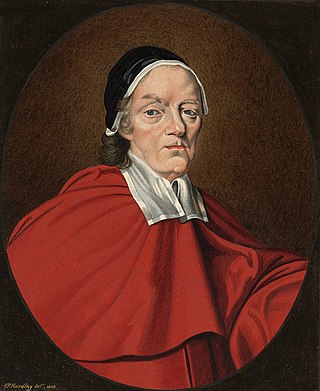
Sir John Maynard KS was an English lawyer and politician, prominent under the reigns of Charles I, the Commonwealth, Charles II, James II and William III.

Peter O'Brien, 1st Baron O'Brien, PC, QC, known as Sir Peter O'Brien, Bt, between 1891 and 1900, was an Irish lawyer and judge. He served as Lord Chief Justice of Ireland between 1889 and 1913. In his lifetime he was universally known as Peter the Packer, due to the skill he displayed as Attorney-General in securing verdicts by packed juries.

Harriet Sarah, Lady Mordaunt was the Scottish wife of an English baronet and member of parliament, Sir Charles Mordaunt. She was the respondent in a sensational divorce case in which the Prince of Wales was embroiled, and after a counter-petition led to a finding of mental disorder she spent the remaining 36 years of her life out of sight in a series of privately rented houses, and then in various private lunatic asylums, finally ending her days in Sutton, Surrey.
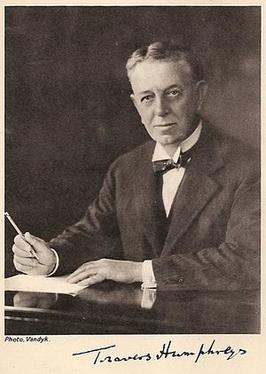
Sir Richard Somers Travers Christmas Humphreys was a noted British barrister and judge who, during a sixty-year legal career, was involved in the cases of Oscar Wilde and the murderers Hawley Harvey Crippen, George Joseph Smith and John George Haigh, the 'Acid Bath Murderer', among many others.
Sir Nicholas Richard Maybury Hilliard is a British judge who was the Recorder of London, an ancient and senior legal post at the Old Bailey, and before that Common Serjeant of London, the Recorder's second. He was appointed to that office in May 2013. From 6 January 2015 he was Recorder of London, the senior judge at the Old Bailey. In October 2019 it was announced that was to be appointed as a judge of the High Court of Justice. He took up that appointment on 19 November 2019 ceasing to be Recorder of London.
















